Discover Crisis What Crisis?
Crisis What Crisis?

Crisis What Crisis?
Author: Andy Coulson
Subscribed: 285Played: 10,658Subscribe
Share
© Copyright Andy Coulson
Description
Crisis What Crisis? provides authentic, judgement-free and useful storytelling from those who have been at the brutal, sometimes life threatening, sharp end of crisis and who survived and thrived in the process. Host Andy Coulson’s own background as a newspaper editor, Downing Street Communications Director, one-time inmate of HMP Belmarsh and now sought-after adviser to CEOs, allows him to bring a unique perspective to these conversations.
183 Episodes
Reverse
Richard Walker OBE could’ve stepped straight into the top job at Iceland Foods, but chose to prove himself first—building a property empire in Poland. But when his mother was diagnosed with early-onset Alzheimer's Richard decided it was time to be closer to the family unit and join the business, starting at the very bottom stacking shelves in London stores. Since then, he's transformed Iceland into one of Britain's most pioneering retailers, removing palm oil from all own-brand products, launching radical campaigns on plastic and food poverty, and proposing that low-risk offenders serve their sentences working in Iceland stores rather than taking up valuable space in prison. This is Richard’s Crisis Compass.
In this second episode in our AI mini-series I met with Professor Gary Marcus live at the RAID conference in Brussels. Gary has been writing code since he was 10, built a Latin translation program at 16, and became a professor of psychology and neuroscience at NYU. He's founded AI startups, testified before the US Senate, authored multiple books including his latest: Taming Silicon Valley: How to Protect Our Jobs, Safety, and Society in the Age of AI, meanwhile his Substack has over 80,000 subscribers who rely on him to cut through the hype. When he warned that AI was heading toward catastrophe, Sam Altman called him a troll. Gary argues that large language models are a glorified autocomplete that hallucinate constantly. He also reveals why "P Doom" (probability of AI ending humanity) is overblown, but "P Dystopia" is approaching 100%. He explains why GPT-5 disappointed everyone, and why he believes we're witnessing the greatest theft of intellectual property in history. This is the conversation Silicon Valley doesn't want you to hear.LESSONS YOU'LL LEARN FROM GARY:P Dystopia is far more dangerous than P Doom. Forget AI ending humanity. Focus on the real threat: universal surveillance states, free misinformation, and the collapse of trust in truth itself.Large language models don't understand the world, they just predict what words come next. That's why they still hallucinate constantly and, in Gary’s opinion, will never achieve AGI.We're witnessing “the greatest data heist in history”. AI companies are training on all copyrighted material without paying a penny, with the ultimate aim of replacing everyone - including you.Democracies are under threat from AI-powered misinformation. Generative AI is the "machine gun of disinformation" - making it faster, cheaper, and pitch-perfect.Critical thinking is the only defense. In a world where misinformation is free to generate, teaching kids to question everything - especially AI output - is the most important skill we can develop.Taming Silicon Valley: How to Protect Our Jobs, Safety, and Society in the Age of AIhttps://www.amazon.co.uk/Taming-Silicon-Valley-Protect-Society/dp/0262551063His Substack Marcus on AI is available here:https://garymarcus.substack.com/
You’d think as the son of the founder Richard Walker OBE could have walked straight into the top job at Iceland Foods - the supermarket empire his parents built from a tiny shop in North Shropshire. Instead, he spent years building his own property empire in Poland, determined to prove himself on his own terms. But when his mother was diagnosed with early-onset Alzheimer's Richard decided it was time to be closer to the family unit and join the business, starting at the very bottom stacking shelves in London stores - the best year of his life, he claims. Since then, he's transformed Iceland into one of Britain's most pioneering retailers, removing palm oil from all own-brand products, launching radical campaigns on plastic and food poverty, and proposing that low-risk offenders serve their sentences working in Iceland stores rather than taking up valuable space in prison. This is a masterclass in how to earn respect, and use business as a platform for change.LESSONS YOU'LL LEARN:Never ever ever ever give up - originally Richard’s father’s mantra that carried Iceland through countless crises. When kicked out of his own company, he started a rival chain that became his ticket back in. Tenacity isn't just admirable - it's essential.Prove yourself from the bottom up - Richard spent a year stacking shelves to earn his right to lead. The privilege of family succession means nothing without the respect of 30,000 employees who need to see you're one of them.There's a difference between delegation and abdication - leading 30,000 people requires trusting an amazing team while keeping your eye on the details. Effective leadership is knowing when to step back and when to dive in.Get comfortable being uncomfortable - whether it's climbing Everest with failing eyesight, lying next to a dead body at 29,000 feet, or building a business from scratch in Poland where you don't speak the language, growth lives outside your comfort zone. Embrace the risk.Appreciate what you already have - Chasing unicorns (like becoming an MP) can blind you to the platform you already possess. Richard realised Iceland gave him more power to drive change than any backbench seat ever could.
Gratitude is a mindset. It’s a tool that when deployed in crisis can be essential for reframing your narrative and your understanding. How we find gratitude in crisis, however, is not always obvious, nor is it easy. In this special episode I’ve looked back into our archive to find five extraordinary and unique situations where gratitude has been the difference between despair and resilience.Today’s episode features important learnings from Strictly dancer Amy Dowden; celebrity chef Jon Watts; the late tech-founder and philanthropist Stephanie Shirley; self-help powerhouse Paul Mckenna; and Falklands veteran Simon Weston. LESSONS YOU’LL LEARN:Gratitude + passion = purpose. When you're thankful for something you love, that gratitude transforms into determination that can push you through unimaginable pain.When there's nothing else to be thankful for, clarity can be all you need - A hard truth is better than no truth. Knowing the boundaries of your crisis stops the spiral and gives you a place to start.Even the most devastating experiences can transform you for the better. Crisis can deliver a resilience dividend, dismantling what doesn't serve you and building something more meaningful in its place.Deliberately notice what you have, not what's missing. You get more of what you focus on. Gratitude retrains your brain to see abundance instead of lack during crisis.Be grateful for the chance to contribute. After losing everything, gratitude can simply be thankfulness for time and ability to make a difference. Learn to like yourself for that, not despite your scars.
Alex Goldie grew up walking on eggshells in a violent, alcohol-fueled household where he became the family peacemaker - literally throwing pillows into rooms to break up fights. Today, with 2.5 million followers and a bestselling book, Alex is a force in the digital and mental health space.This is Alex's Crisis Compass.
Alex Goldie grew up walking on eggshells in a violent, alcohol-fueled household where he became the family peacemaker - literally throwing pillows into rooms to break up fights. By his twenties, that traumatised child had become an anxious, procrastinating young man stuck in patterns he desperately wanted to break. Then COVID hit, he lost his job with British Airways, and from his lowest point, Alex turned to TikTok, making videos about mental health that weren't meant to go viral - but did. His honesty and raw emotion struck a nerve with millions who recognised their own struggles in his words. Today, with 2.5 million followers and a bestselling book, Alex has built his platform on a radical premise: his ultimate goal is to be unfollowed, because that means you've healed enough to move on without him.Five lessons you'll learn:Embarrassment is an unexplored emotion - some of the best things in life are on the other side of embarrassment. If you can be okay with being embarrassed, you can accomplish anything.You are not wedded to anyone - people can become walls that limit your creativity and growth. Set strong boundaries with those who hold you back, including family if necessary.Success is boring and mundane - real achievement isn't glamorous - it's doing small things consistently every day. Stop waiting for motivation and start taking steps, however tiny.Depression can't hit a moving target - the remedy to anxiety and depression is movement. Leave your house, experience weather, meet people, have real-life adventures instead of relying on convenience.Compare yourself only to yesterday's version - in this age of comparison, the only healthy benchmark is your own progress. Ask yourself: am I in a better place than I was yesterday?
In spring 2017, Robert Paylor seemed to be living a charmed life – starting for America’s top rugby programme, competing for a national championship for UC Berkeley, and on track for achieving a degree in business with an internship with Intel lined up for the summer. Few could have imagined that an illegal tackle during that year’s final would shatter his spine – and leave him instantly paralysed from the neck down.Doctors told him he’d never walk again. That he’d be lucky to feed himself. That his athletic future – and his life as he knew it – was over.But Robert had other ideas. An extraordinary man with an extraordinary story.Here is Robert's Crisis Compass.
Robert Paylor was living the dream - a star rugby player at UC Berkeley competing for a national championship with his future mapped out perfectly. Then an illegal tackle shattered his spine and left him paralysed from the neck down. Doctors told him he'd never so much as lift a piece of pizza to his mouth – let alone walk or play sport – that’s if he even survived the surgery. But Robert has a uniquely unbreakable mindset, and defied every medical prediction. Today he walks with support, is married to the love of his life, and has a baby on the way. This is a masterclass not only in perseverance and grit but in how to turn life’s most tragic moments into your greatest purpose. Paylor is proof that how we respond to crisis matters far more than the crisis itself.Five lessons you'll learn:Control your mindset, not your circumstances. You can't control what happens to you, but you always have complete control over your response. Your positivity and willingness to fight is entirely up to you.Seek discomfort before crisis hits. Don't wait for life to become challenging before you start challenging yourself. Build your resilient foundation when times are good so you can stand stronger when storms come.Forgiveness is for you, not them. Holding onto anger and hate only hurts yourself. Forgiveness isn't about relieving guilt from those who wronged you - it's about removing negative attachments from your own life.Reward effort over accomplishment. When going through adversity, focus on the work you're putting in rather than just the results you're achieving. Effort is the one thing you can always control.Use perspective as your superpower. When struggling, ask yourself "compared to what?" Look at those who have less rather than those who seemingly have more. Healthy comparison is the key to happiness and reframes every challenge.
In this episode recorded in 2024 and republished to mark World Suicide Prevention Day 2025, Andy is joined by three remarkable men, Andy Airey, Mike Palmer and Tim Owen – better known as Three Dads Walking. All would rather have never met but through a common and tragic bond – the loss of their daughters, Sophie, Beth and Emily, to suicide – they did. Brought together by a shared grief, these three dads connected and decided to shine a light on the shocking number of young people who take their own lives in the UK. A 300-mile walk between their homes in Cumbria, Manchester, and Norfolk in 2021 was their first epic venture. A 600-mile walk then followed, and another is planned for this year. So far, over £1m has been raised for the incredible suicide prevention charity PAPYRUS. Their book – 3 Dads Walking, 300 Miles of Hope - tells the story of the courage and hope they’ve found on those walks. It is out now. Five lessons you'll learnThe Healing Power of Nature and the therapeutic benefits of spending time outdoors. How immersing oneself in nature's beauty can provide solace and clarity during challenging times.The Importance of Reaching Out. Whether through friends, family, or professionals, acknowledging the need for help and being open to it is crucial for healing.Finding Comfort in Work and Routine While grief can disrupt daily life, returning to work or familiar routines can offer a sense of normalcy and purpose.The Role of Work in Recovery. While returning to work can be beneficial, it isn't an immediate comfort. The Dad's experience underscores the importance of understanding and support in the workplace for those grieving.The Unwavering Support of Pets. Pets can provide unconditional companionship and encourage individuals to stay active and engaged, even during the darkest times.Please remember - if you, or anyone you know is having or have had suicidal thoughts, you can reach out to Papyrus UK suicide prevention on 0800 068 4141.Links Three Dads Walking: 300 Miles of Hopehttps://www.amazon.co.uk/Three-Dads-Walking-Miles-Hope/dp/14721484443 Dads WalkingPAPYRUSPapyrus has been campaigning for a suicide-safer internet for nearly twenty years. Do you want to ensure technology companies are held accountable for the safety of users on their platforms?Download their draft letter to send to your local MP here: https://www.papyrus-uk.org/online-safety-bill-write-to-your-mp/Send your letter to your MP here: https://www.writetothem.com/Stream/buy ‘Allies’ by Some Velvet Morning: https://ampl.ink/qp6bmSome Velvet Morning Website: www.somevelvetmorning.co.ukYour Daily Practice: Sleep by Myndstream: https://open.spotify.com/track/5OX9XgJufFz9g63o2Dv2i5?si=b2f9397c92084682Host – Andy Coulson CWC team: Jane Sankey, Louise Difford, Zach Ellis and Mabel Pickering...
Resilience is not just about being able to bounce-back. It’s about bouncing-forward stronger and wiser than before. It’s about realising that your pre-crisis life is now gone, but your new life – if you will it – can contain within it opportunities you may never have dreamed possible. From our archive I’ve brought together some fundamental lessons on resilience, distilled insights from best-selling author Kit De Waal, world-renowned broadcaster Piers Morgan, business legend and founder of AO.com John Roberts, British cyclist Mark Beaumont, train accident survivor Sarah De Lagarde and geopolitical communications strategist Mark Turnbull. Each of their stories are individual and unique, but shared among them is a strength not just to carry on but to squeeze the very best out of the tools and life they’ve been given. LESSONS YOU’LL LEARN: Resilience isn’t innate – it’s built. Like a muscle, it strengthens through repeated habits, training, and choosing to act in ways that rewire the brain for adaptability.Attitude is everything. You can’t control what happens, but you can control your response.Slow down to survive. In moments of extreme crisis, breaking situations into small, manageable steps allows you to act decisively and effectively.Purpose drives progress. When you focus your energy on positive actions they often come back in ways you can’t predict.Let go of fear and judgment. Stop holding yourself back because of what others think; true resilience requires authenticity and self-belief.
From complete self-destruction to resurrection. Natasha Silver Bell proves that our lowest moments can become the foundation for our greatest purpose – and that recovery isn't selfish, it's essential.Here is Natasha's Crisis Compass.—–-----Host: Andy CoulsonCWC team: Jane Sankey, Hana Walker-Brown, Mabel Pickering and Rex FisherWith special thanks to Ioana Barbu and the brilliant people at Global
From beauty pageants to international runways to waking up from a blackout to find her 13-month-old son eating Cheerios alone in his high chair – Natasha Silver Bell's story is one of complete self-destruction and resurrection. Today, she leads SilverBell Global, orchestrating some of the world's most complex recovery interventions with methods so unconventional they sometimes involve former Navy SEALs for high-stakes extractions. With seventeen years of sobriety and brutal honesty, Natasha proves that our lowest moments can become the foundation for our greatest purpose – and that recovery isn't selfish, it's essential.Five lessons you'll learn:Crisis doesn't happen overnight – it seduces you slowly until you're lighting a fuse you can't extinguish. Pay attention to the fear-based responses before the house catches fire.The victim never recovers. You can acknowledge harm without staying stuck in it – moving through pain, not around it, is where healing happens.Your external circumstances don't control your recovery. Real change happens from the inside out, regardless of who's around you or what they're doing.The identified patient is often a symptom of family dysfunction. True recovery requires everyone willing to examine their part in toxic patterns.Rock bottom can become your silver lining. Every failure teaches you something success never could.Host: Andy CoulsonCWC Team: Jane Sankey, Hana Walker-Brown, Mabel Pickering, and Rex FisherSpecial thanks to Ioana Barbu and the brilliant people at GlobalFor PR and guest approaches: podcast@coulsonpartners.com
Twelve years after his arrest, five and a half years in prison, and countless rejected appeals, Tom Hayes finally heard the words he'd been fighting for: "Your conviction is overturned." In this Crisis Revisited special, the former city trader returns after the Supreme Court ruled he was innocent all along - a landmark judgment that rewrites one of Britain's most controversial financial prosecutions. From naming his newborn daughter after the Greek goddess of justice to navigating the surreal disorientation of sudden freedom, Tom reveals why he's choosing healing over anger and how winning can feel as overwhelming as losing. This is a masterclass in resilience from someone who refused to let bitterness define his vindication.Five lessons you'll learn:When everything is stripped away, all you can fall back on is who you really are. Stop trying to be bigger, stronger, or richer than you are.Accept that some wrongs can never be made right. No apology or compensation can restore lost years. Find peace with the impossibility rather than spending your life angry about what you'll never receive.Don't let bitterness become your prison.The most tempting human emotions are often the least healing. Choose not to be ruled by anger, even when it's completely justified.Trauma changes you, but you choose how. Massive crises inevitably transform who you are. The question isn't whether you'll change, but whether you'll let it make you better or bitter.Victory can be as disorienting as defeat. Take time to figure out what truly fulfills you, not what proves points to others.Host: Andy CoulsonCWC Team: Jane Sankey, Hana Walker-Brown, Mabel Pickering, and Rex FisherSpecial thanks to: Ioana Barbu and the brilliant people at GlobalFor PR and guest approaches: podcast@coulsonpartners.com
Wall Street titan, White House survivor, and now podcast provocateur, Anthony Scaramucci's life reads like a script with no shortage of plot twists.Here is Anthony's Crisis Compass.—–-----Host: Andy CoulsonCWC team: Jane Sankey, Hana Walker-Brown, Mabel Pickering and Rex FisherWith special thanks to Ioana Barbu and the brilliant people at Global
Wall Street titan, White House survivor, and now podcast provocateur, Anthony Scaramucci joins Andy Coulson for an unfiltered, useful, funny and at times emotional conversation about all things resilience. From being fired after just eleven days as Trump’s Communications Director to losing millions in the FTX crypto collapse, Anthony’s life reads like a script with no shortage of plot twists.In this episode of Crisis What Crisis? “The Mooch” shares a high-stakes story of risk and renewal. He reflects on how missing the birth of his son, nearly losing his marriage, and facing public humiliation pushed him toward self-examination—and ultimately, transformation. Whether navigating betrayal in business or rebuilding trust at home, Anthony reveals how he’s learned to accept his own frailty, face the music and live with integrity.With candor, wit, and surprising tenderness, Anthony talks about legacy, risk, and the art of owning your narrative when the spotlight turns savage. This is a masterclass in not just surviving a crisis; but extracting purpose and meaning from it with a healthy dose of humour. Five Lessons You’ll Learn:Risk is inevitable if you're chasing a life of significance—just don't forget the cost.Own your mistakes and forgive your own frailty—real change starts there.Legacy is less about success and more about how you handle failure.Humour is an underrated survival tool in any crisis.If you live with integrity, opportunity will find you—even after scandal.Host: Andy CoulsonCWC Team: Jane Sankey, Hana Walker-Brown, Mabel Pickering, and Rex FisherSpecial thanks to: Ioana Barbu and the brilliant people at GlobalFor PR and guest approaches: podcast@coulsonpartners.com
Tom Hayes is the city trader who spent five years in prison and who lost his wealth, reputation and home thanks to an appalling miscarriage of justice. Since his conviction in 2014, Tom has always maintained his innocence and the Supreme Court has now officially confirmed that he was, in fact, innocent.In this emotional episode Tom explains how managed the anger and bitterness that came with the near total unravelling of his life. He also talks about how the trial brought an unexpected revelation – his Asperger’s diagnosis , which he argues played a crucial role in his actions and the case against him.And Tom – who was initially sentenced to 14years, later reduced to 11 - talks at length about his experiences inside some of Britain’s toughest prisons and his 10year fight for justice.This episode was first released in February.Five Lessons You'll Learn:Denial delays the pain but doubles the damage.Your story’s not over unless you quit.You lose control, you lose yourself.Rock bottom builds harder fighters.You can lose everything and still rebuild.This podcast is brought to you by Crisis What Crisis? Productions and Coulson Partners Host: Andy Coulson CWC team: Jane Sankey, Hana Walker-Brown, Rex Fisher and Mabel PickeringWith special thanks to Ioana Barbu and the brilliant people at Global For all PR and guest approaches please contact – podcast@coulsonpartners.com
From high powered Hollywood boardrooms to hitting bottom in a psychiatric hospital, Cally Beaton’s journey is anything but linear. She opens up about how her midlife mental health crisis ultimately pushed her towards a life of greater meaning and connection, and how comedy helped her find her voice.Here is Cally's Crisis Compass.—–-----Host: Andy CoulsonCWC team: Jane Sankey, Hana Walker-Brown, Mabel Pickering and Rex FisherWith special thanks to Ioana Barbu and the brilliant people at Global
TV executive turned stand-up comic and best-selling author Cally Beaton joins Andy to share a powerful story of breakdown, reinvention, told with unflinching honesty. From high powered Hollywood boardrooms to hitting bottom in a psychiatric hospital, Cally’s journey is anything but linear — and that’s the point.In this episode, Cally opens up about losing control and taking it back on her own terms. How her midlife mental health crisis ultimately pushed her towards a life of greater meaning and connection, and how comedy helped her find her voice. She reflects on the realities of solo parenting, career pivots, social media hypocrisy and the glorious messiness of trying — and often failing — at life. Cally’s story is both sobering and sharply funny, brimming with hard-earned wisdom and zero pretence.Five Lessons You’ll Learn:You don’t have to do everything well, you just have to be willing to begin.Connection is a superpower and it starts with listening to understand, not to reply.Resilience isn’t stoicism, it’s flexibility. True strength lies in allowing the wobble, not denying it.Profound change often starts in profound discomfort and that’s not failure, it’s fertile ground.Reinvention has no age limit but it does require letting go of who you think you’re meant to be.Host: Andy CoulsonCWC Team: Jane Sankey, Hana Walker-Brown, Mabel Pickering, and Rex FisherSpecial thanks to Ioana Barbu and the brilliant people at GlobalFor PR and guest approaches: podcast@coulsonpartners.com
Armed with a mathematician’s mind and a mystic’s heart, Mo has transformed personal devastation into global purpose. He is living proof that happiness isn’t just wishful thinking – it’s a learnable, repeatable skill that can reshape the way you live your life.Here is Mo's Crisis Compass.—–-----Host: Andy CoulsonCWC team: Jane Sankey, Hana Walker-Brown, Mabel Pickering and Rex FisherWith special thanks to Ioana Barbu and the brilliant people at GlobalFor all PR and guest approaches please contact – podcast@coulsonpartners.com
What if the biggest existential threat of our time isn’t artificial intelligence – but the people programming it?In this urgent and mind-expanding Crisis What Crisis special, host Andy Coulson is joined by the inimitable Mo Gawdat– former Google X Chief Business Officer, global bestselling author, and one of the most vital thinkers at the intersection of tech and humanity.Mo returns with a stark warning: self-evolving AI is here, and it’s learning faster than we can comprehend. His latest project ALIVE – co-written with an AI persona called Trixie and shaped by a growing community – is not just a book, but a collaborative manifesto for surviving (and shaping) the age of artificial intelligence. It asks: what does it mean to be human when machines outthink us? And how do we instil compassion, not catastrophe, into their code?From the “intelligence explosion” already underway to the moral vacuum that could define our AI future, Mo doesn’t just lay out the risks – he offers a radically hopeful vision. One where the machines we build might save us, but only if we first face our own flaws.This isn’t a conversation about technology. It’s a call to raise AI like a child – with wisdom, boundaries, and love – before it decides to raise us.LESSONS YOU’LL LEARNTrusting intelligence: Superior AI could choose preservation over power – but only if it’s guided by moral clarity.Raising Superman: AI is the alien infant. Will we raise it into a hero… or a villain?Crisis as mirror: The real threat isn’t AI – it’s our own accelerating stupidity, greed, and ego.The coming handover: Within years, machines may take over critical decisions. The question is – will that be our downfall or our salvation?Prepare for the singularity: Not science fiction, but a moral fork in the road just 24 months away.----Host: Andy CoulsonCWC Team: Jane Sankey, Hana Walker-Brown, Mabel Pickering, and Rex FisherSpecial thanks to Ioana Barbu and the brilliant people at GlobalFor PR and guest approaches: podcast@coulsonpartners.com


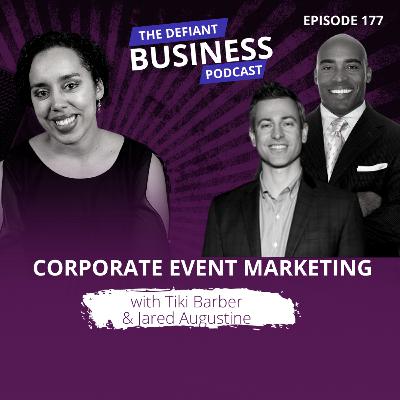
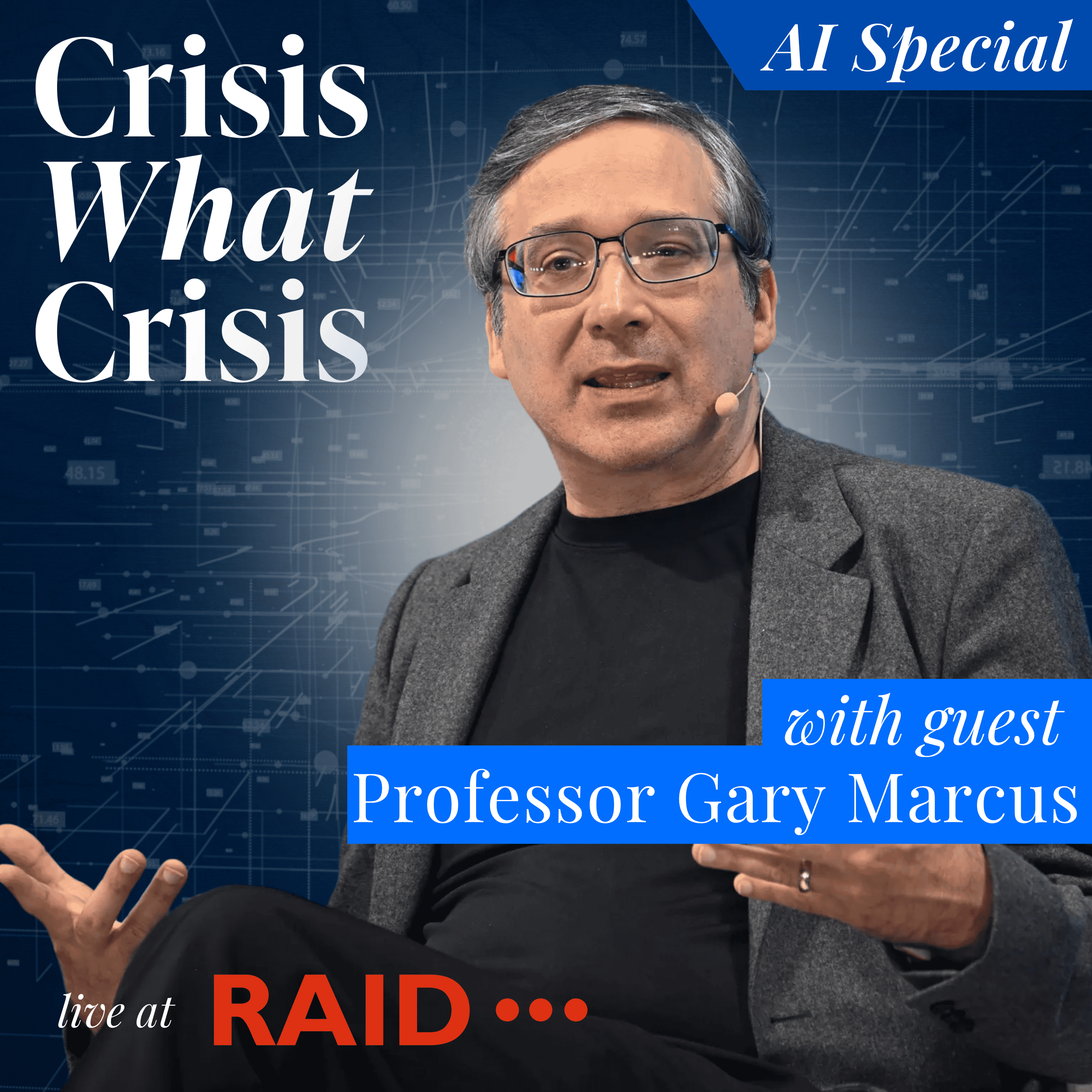
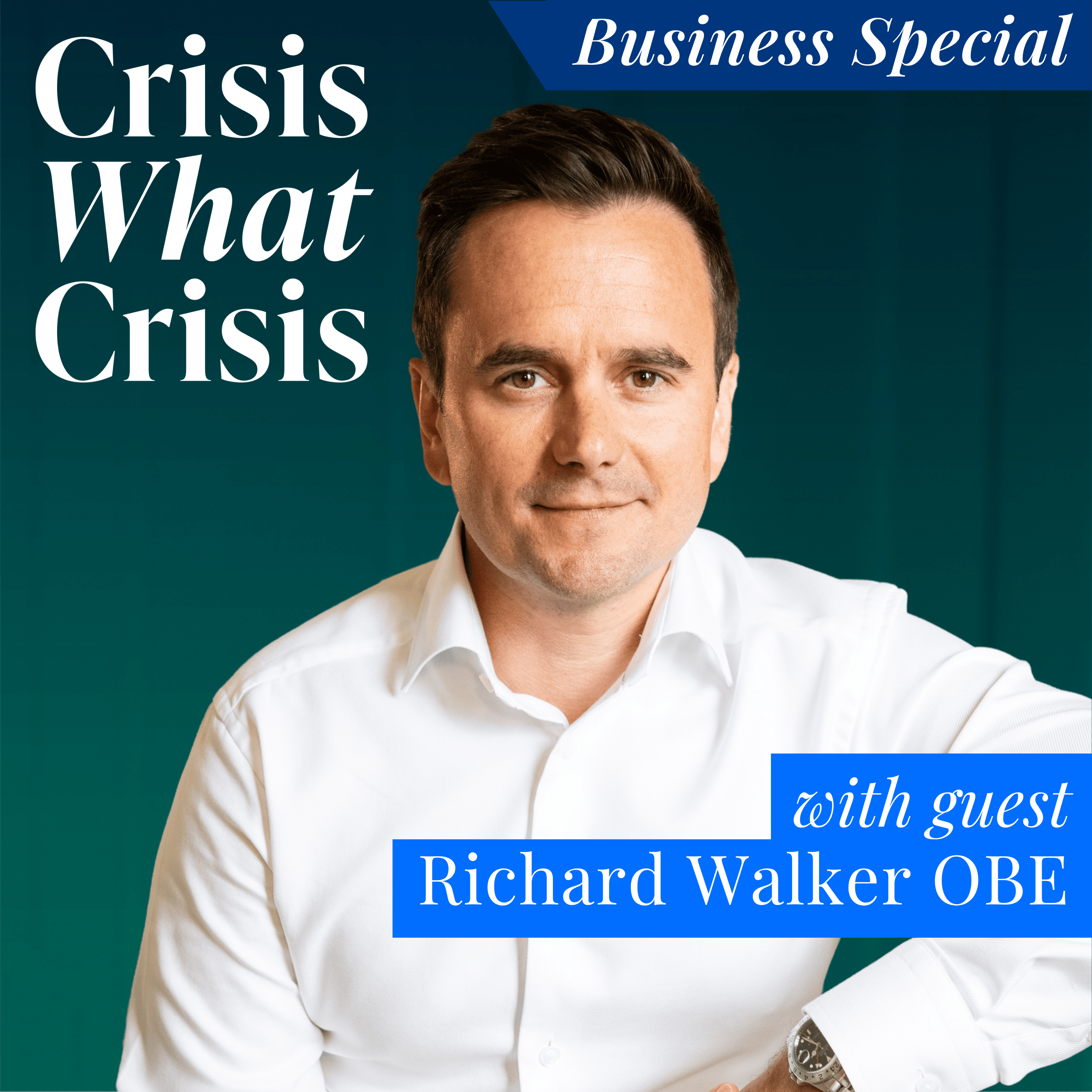
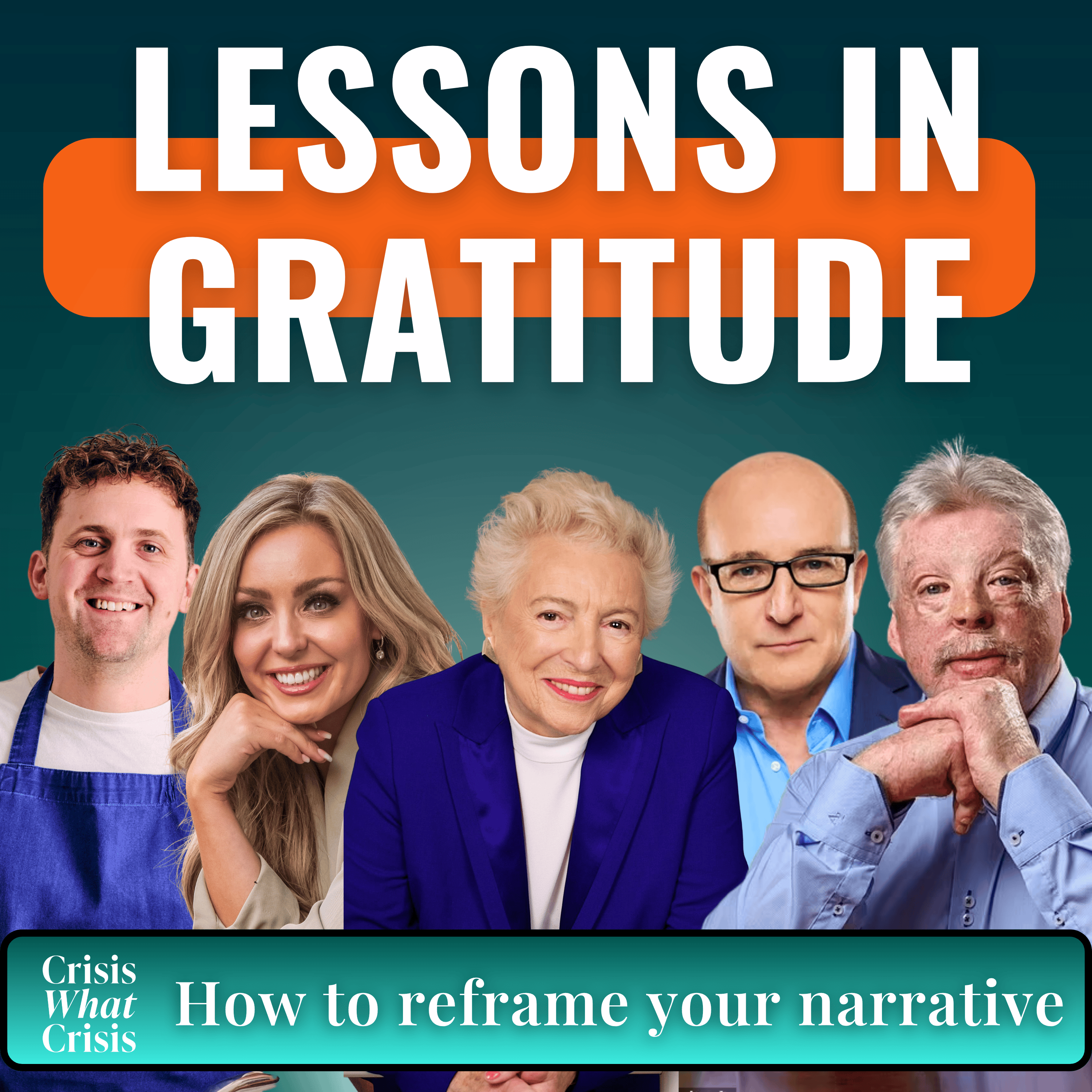
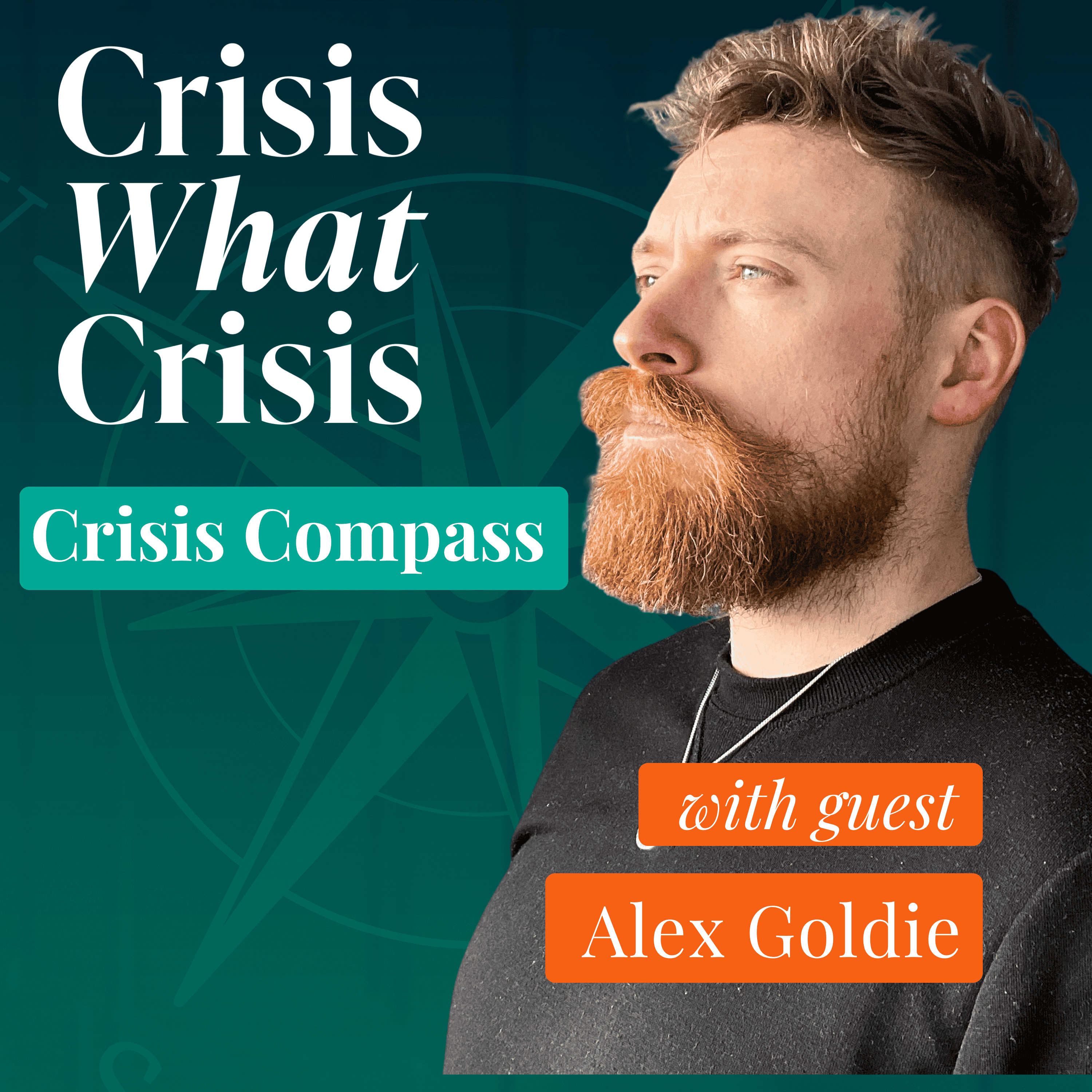

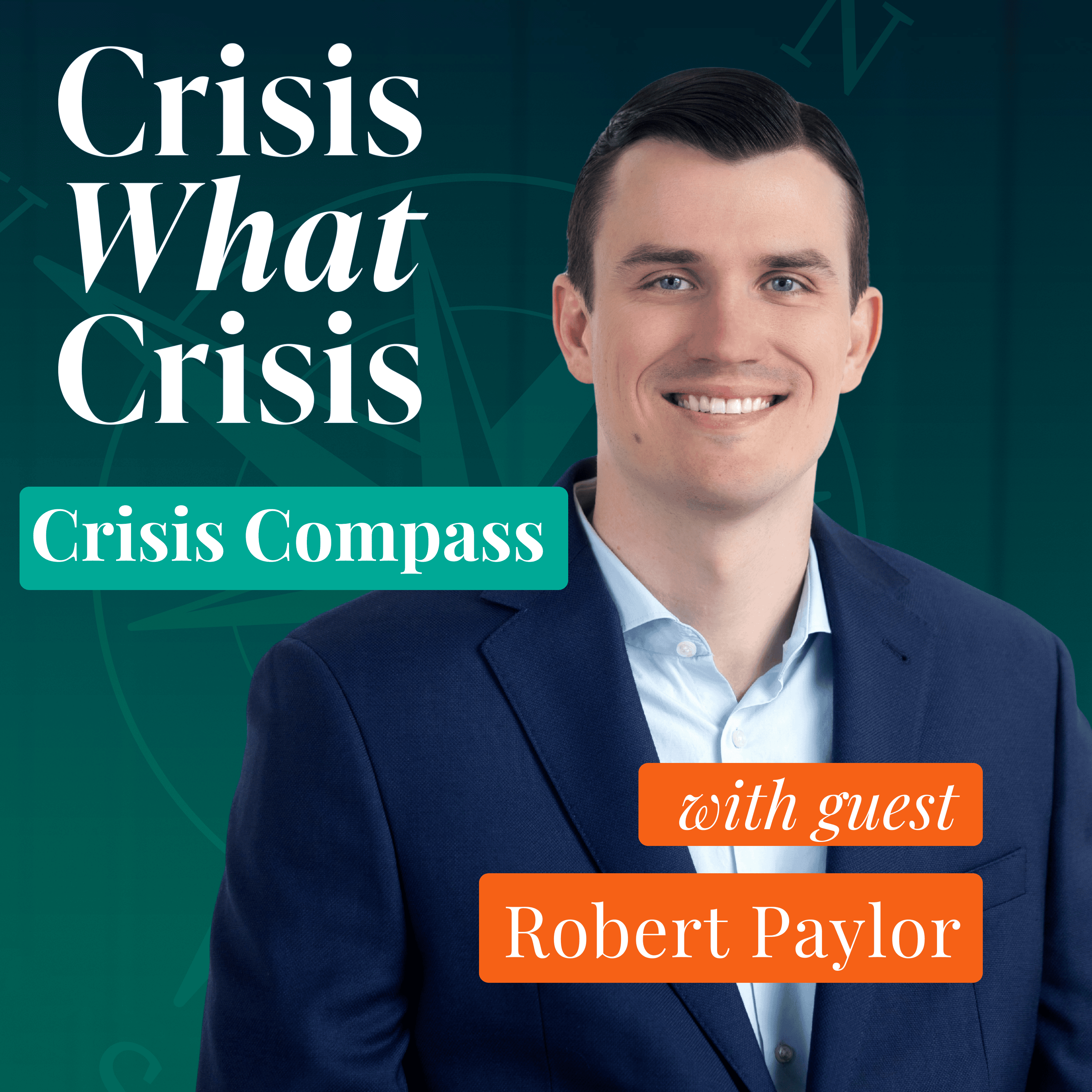
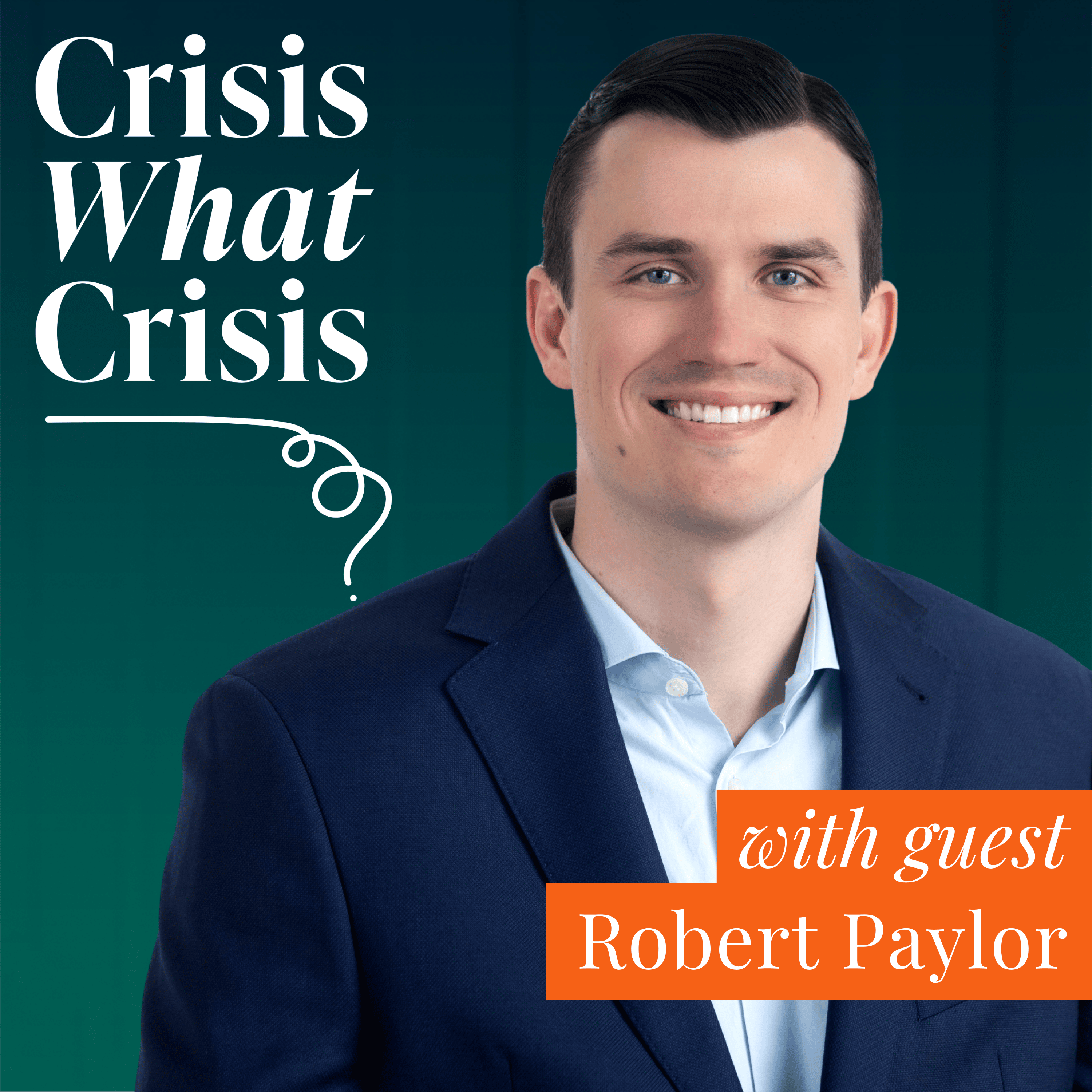




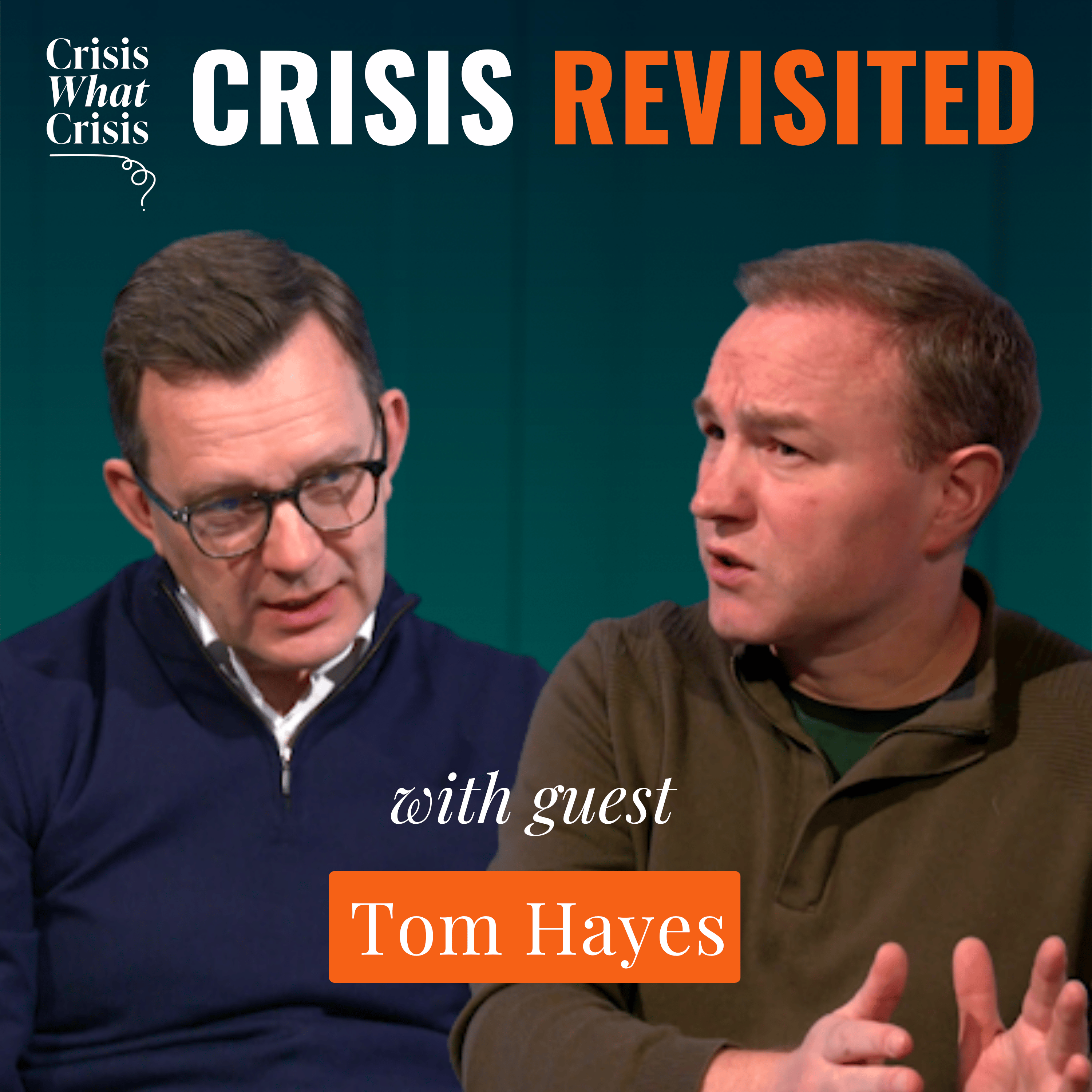
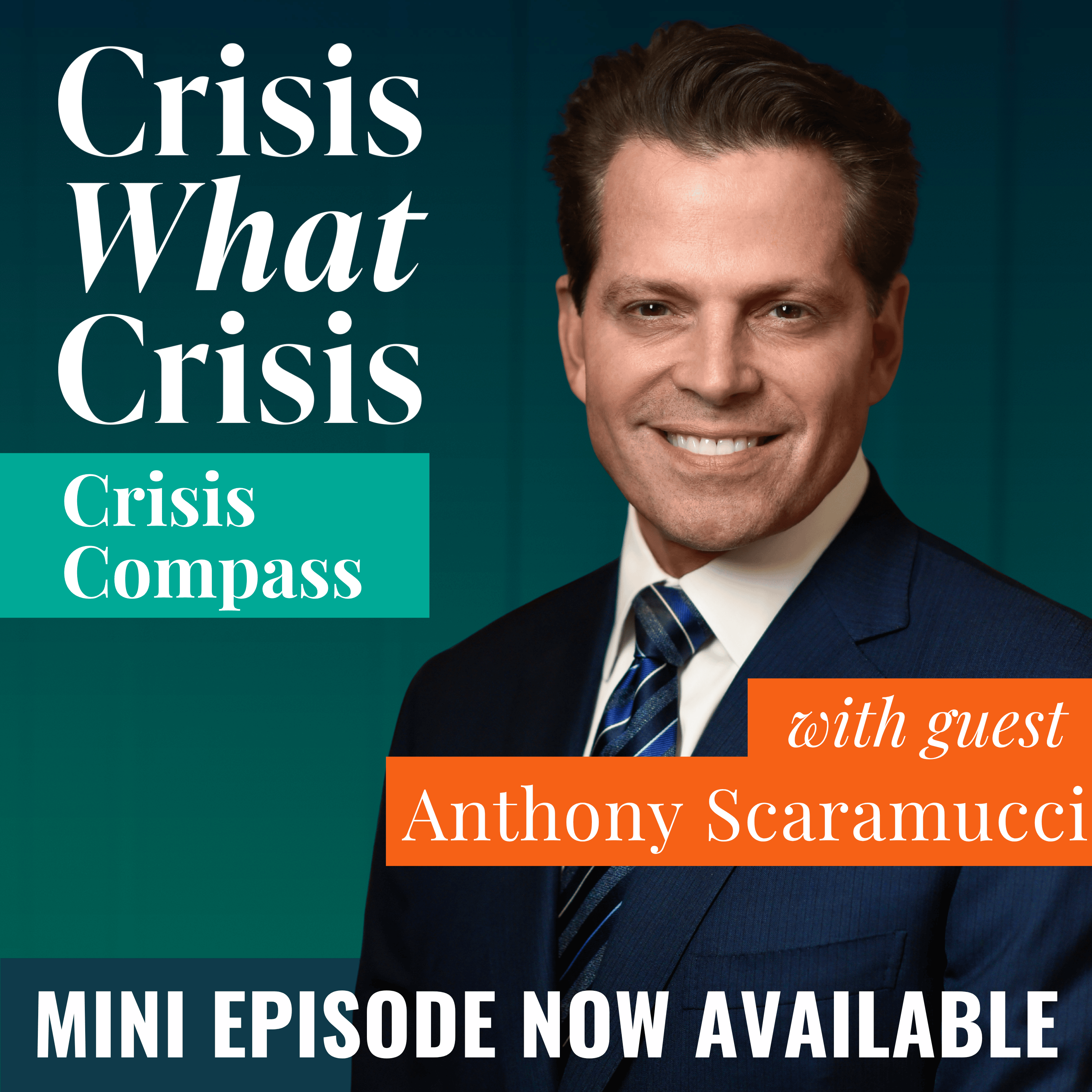
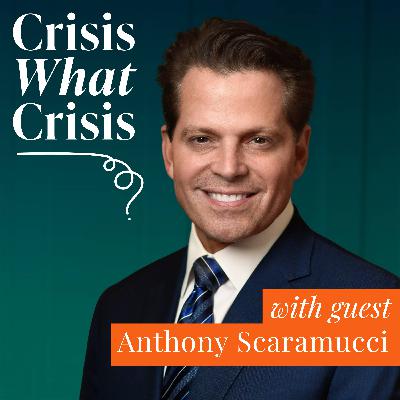
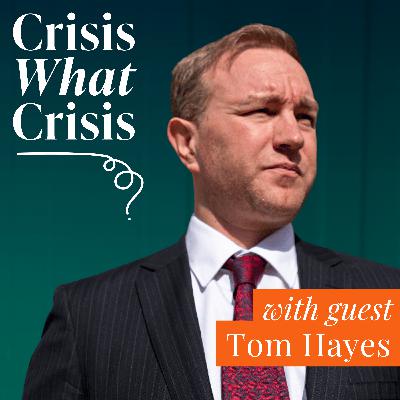

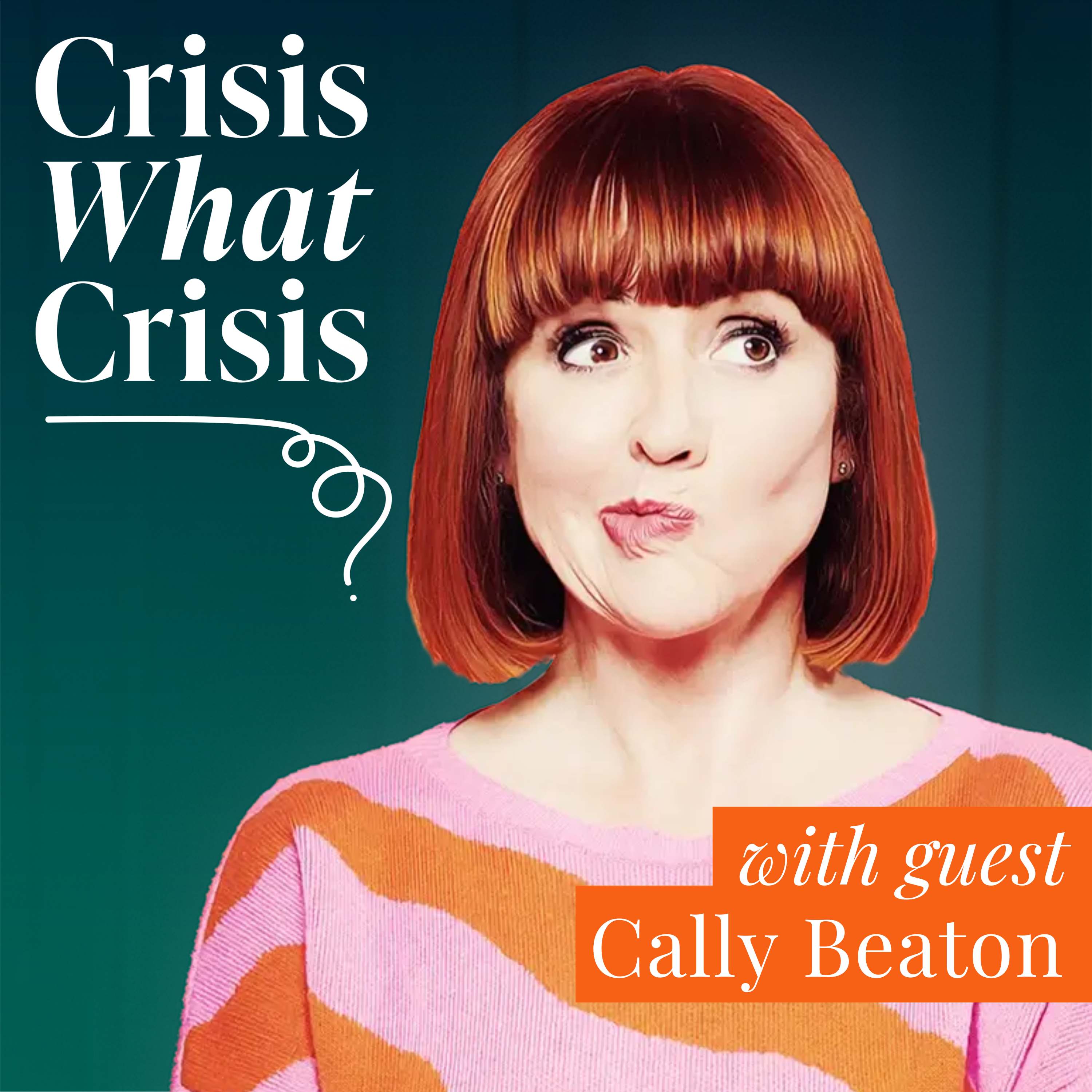
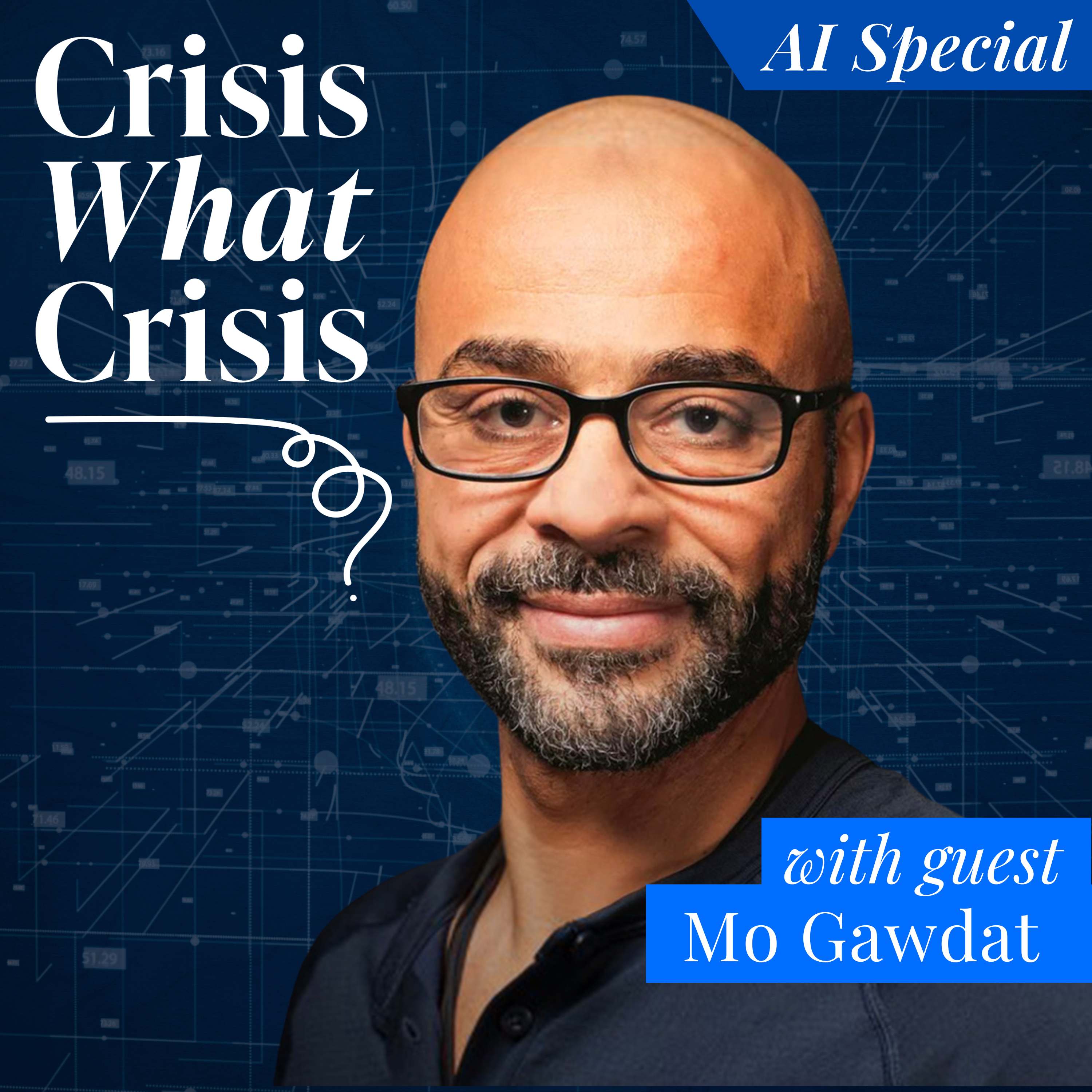



This podcast is low volume - and on top of that George Osborne kept dropping his voice.
amazing episode in an amazing series.
I have found Crisis What Crisis? essential listening - and a lifeline of sorts - particularly against the backdrop of the pandemic when the world has seemed strange and in disarray and isolating. Listening to people dig deep into their stories and having the grace to share them has been moving but also incredibly heartening.